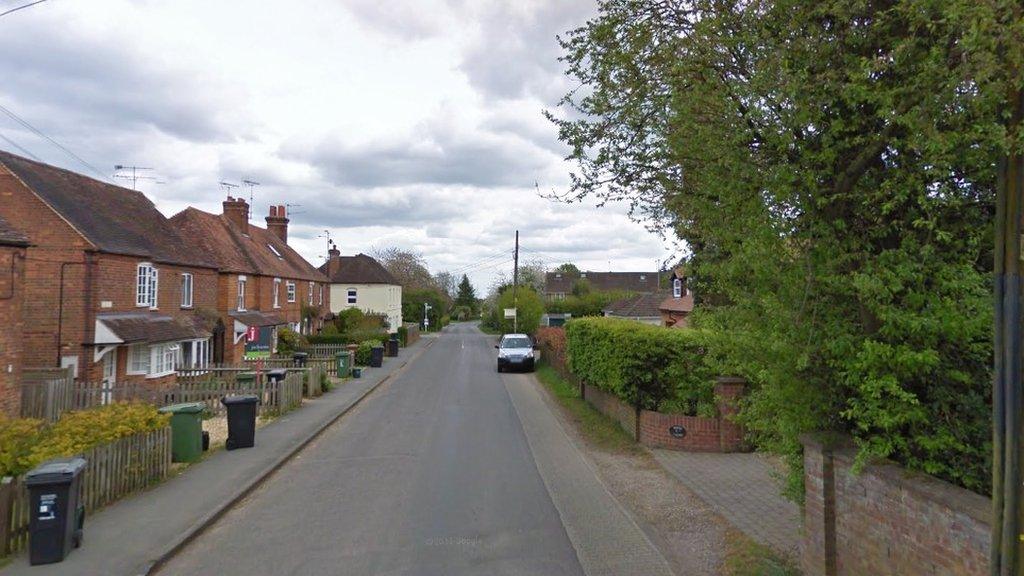Man killed in electric skateboard crash had been drinking, inquest hears
- Published
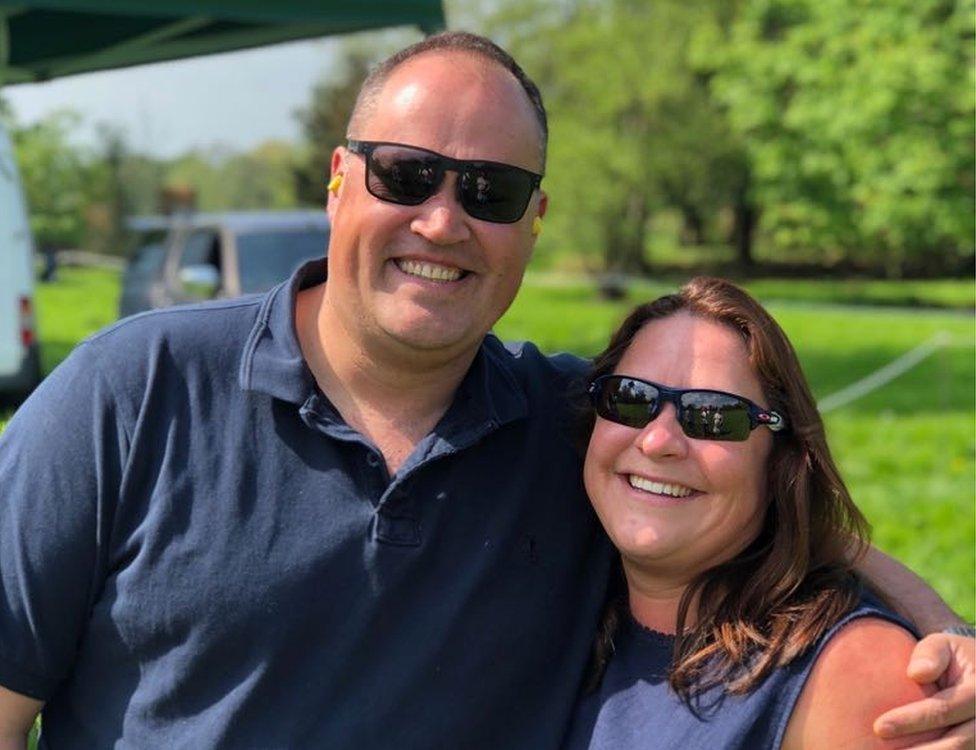
Bradley Visser had owned the skateboard for about two weeks before the fatal crash
A father who died after falling off an electric skateboard had been drinking and was breaking the law by travelling on a public road, an inquest has heard.
Bradley Visser, 38, died 10 days after he crashed near his home in Stoke Row, near Henley-on-Thames, on 17 July.
Oxford Coroner's Court heard the South African national lost control while travelling at roughly 20mph (32km/h).
A friend told the inquest he believed Mr Visser had drunk five or six cans of lager before the accident.
The court heard the cabinet-making business director had not been wearing a helmet or any other safety equipment at the time of the crash, and his Evolve GT Carbon skateboard was working properly.
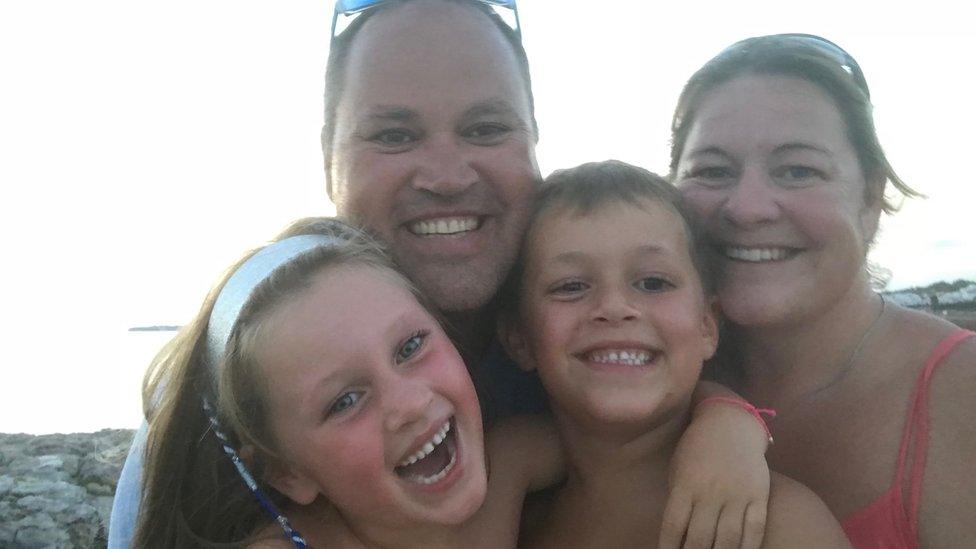
Father-of-two Bradley Visser was a "proud South African"
Assistant coroner Peter Clark said using such a vehicle on a public road was illegal, and recorded a verdict of misadventure.
"He didn't mean to fall off, but obviously there was a risk," he added.
Mr Clark said he would write to the transport authorities to ask whether there should be greater regulation in relation to the sale and use of such vehicles.
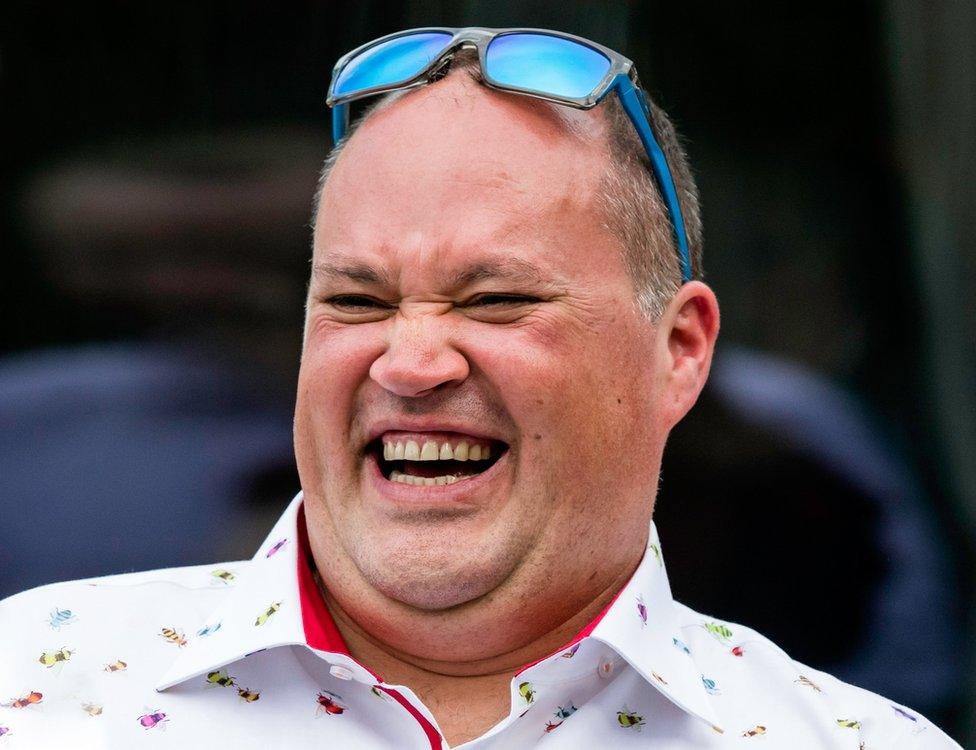
Mr Visser was the "life and soul of the party", according to his widow
He also asked Mr Visser's widow Annie if there were any further recommendations she would like him to make.
Speaking in court, she said: "I think if Brad had known what he was doing was wrong he wouldn't have done it, and we wouldn't be here now.
"But I'm not going to turn around and say people can't use them, because he took great enjoyment from it."
Previously Mr Visser had given his wife power of attorney in a document stipulating she should not try to keep him alive if certain "life parameters" were not met.
When he was found to have severe brain damage, his life-support machine was switched off.
- Published18 November 2019

- Published6 August 2019
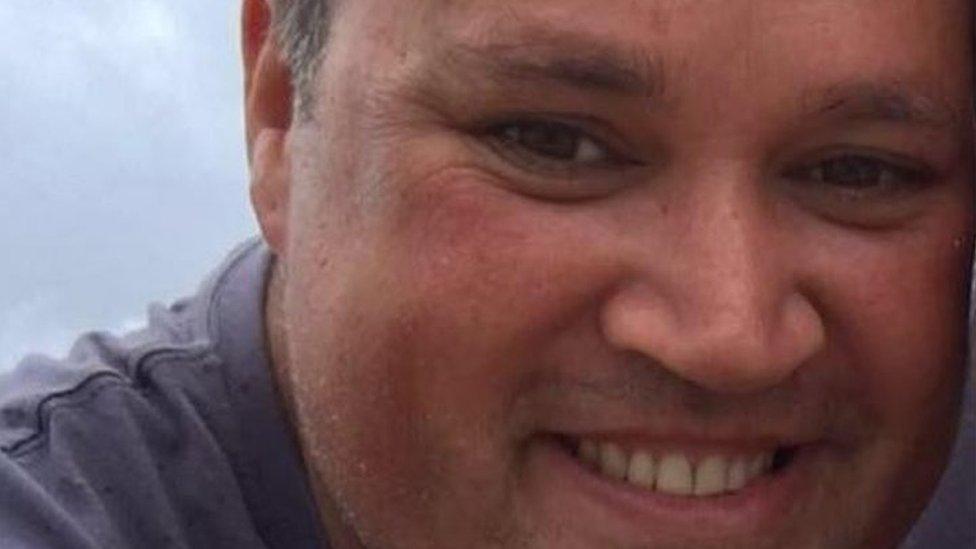
- Published3 August 2019
